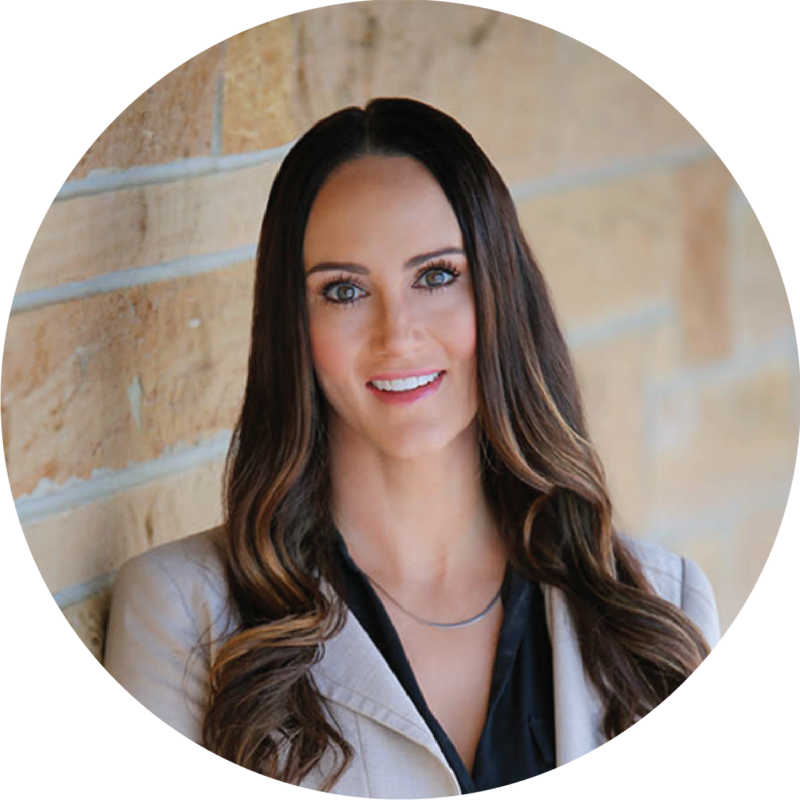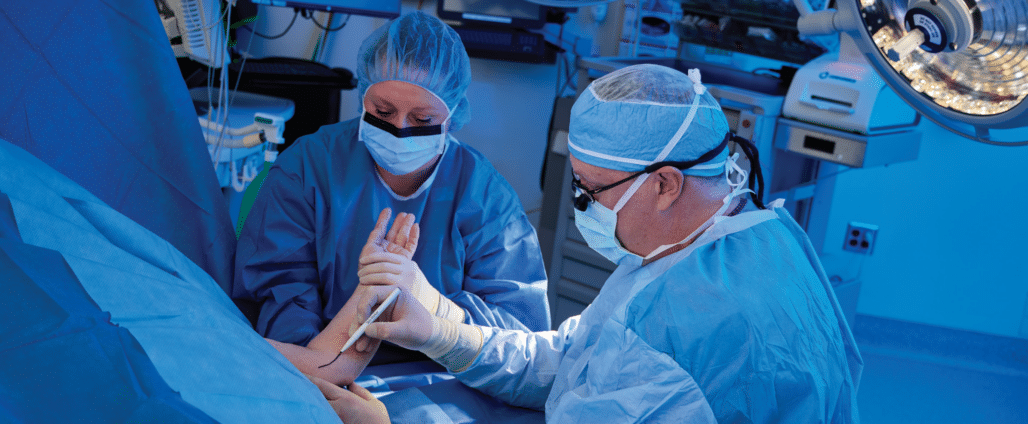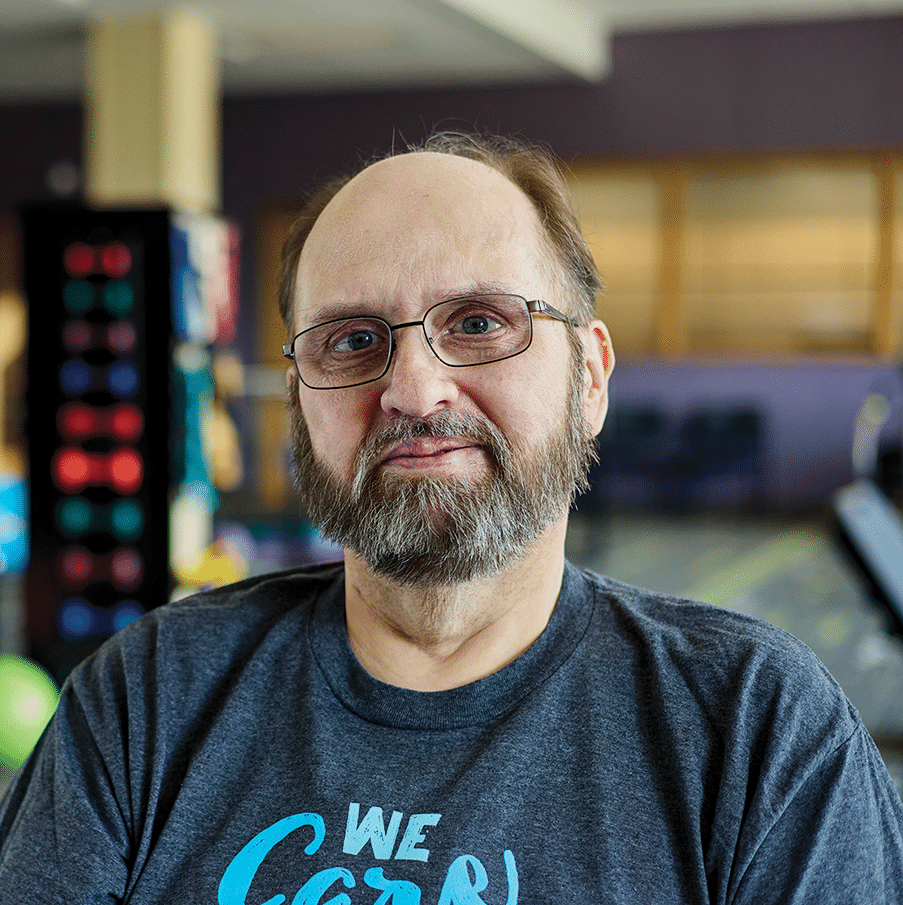
When Amy Dittmer took a bite of her breakfast on November 16, 2020, she knew something wasn’t right.
“I couldn’t taste anything, and then I realized I couldn’t smell either,” said Amy.
Amy tested positive for COVID-19, and for the next 17 months, her smell and taste were gone or altered. At first, both senses were lost, but after one month, the loss of smell was replaced with the constant smell of cigarette smoke.
“I don’t smoke, and I’m not around anyone who smokes, but the smell was nonstop,” Amy said. “It would last for a week or two, and then I wouldn’t smell anything again.”
Her experience with the return of taste was equally unpleasant – fruit tasted rotten, dairy tasted spoiled, and carbs and sugar tasted “how Windex smells.”
“It totally messes with your mind,” said Amy. “You feel like you have no idea what you’re eating or drinking. It takes the pleasure out of a lot of things. I felt like a completely different person.”
After a full year passed for Amy, it was hard to remain hopeful.
“I gave up,” Amy said. “I really thought it was never coming back.”
Then, she heard about a potential solution from Kelly Mickolichek, who also lost her senses of taste and smell to COVID-19. Both were returned after she received a stellate ganglion block from Board-Certified Pain Management Specialist, Joslin Thiemann, APRN, CRNA, NSPM-C.
Kelly’s Story
Kelly tested positive for COVID-19 on December 4, 2020, and was without her regular senses of taste or smell for 15 months. Just like Amy had, Kelly lost her senses of taste and smell completely at first, but then both senses returned sporadically in odd ways.
“Things smelled and tasted like an electric shock for two months,” Kelly said. “Then it went away, but once a week I’d experience a constant, gross smell – anything from boiled hot dogs to foul body odor.”
Kelly’s first experience with parosmia, a distortion in the sense of smell, lasted a week, during which she continually smelled the scent of dog feces.
“I didn’t know parosmia was a side effect of COVID-19 at the time, and I just thought I was crazy,” Kelly said. “I felt paranoid and was checking my shoes and my co-workers’ shoes the first day, thinking someone stepped in something. Then it lasted the entire week.”
Kelly is an avid baker, and one day while baking, she accidentally started a small fire in her kitchen.
“I couldn’t smell the smoke – I didn’t know there was a fire until the fire detector went off,” said Kelly. “It scared me, so I began setting five timers every time I cooked or baked.”
After a year, Kelly thought her taste and smell would never return. But then she heard about stellate ganglion blocks.
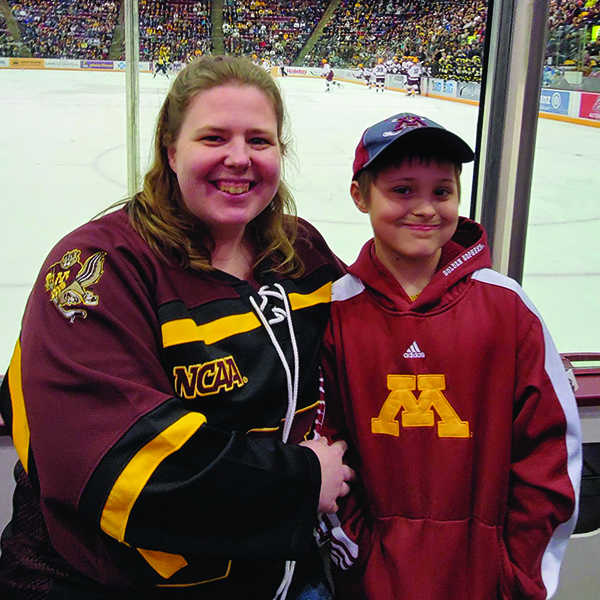
Unblocking the senses
Starting in the 1930s, stellate ganglion blocks have been in use far before COVID-19 and are often used for issues such as chronic pain, anxiety, and PTSD. While scientists do not yet fully understand why some patients lose their senses of smell or taste to COVID-19, the stellate ganglion block has been found to be roughly 80 percent effective in returning patients’ senses.
During the procedure, Joslin numbs the injection site and injects the steroid into the stellate ganglion nerve, located in the neck. She uses an ultrasound to locate the appropriate site and guide the needle. While the block doesn’t work for everyone, taste and smell are often returned quickly for those who have success with it.
“While they were cleaning up, I could smell the lemon-scented wipes. Right away, I began to cry,” said Kelly. “Then I had Joslin crying, and then the whole room crying. It was an emotional experience.”
Just as Kelly experienced, Amy could smell the lemon cleaner immediately after her injection.
“I wanted to know if my taste was back, too, so Joslin brought me a container of peanut butter. I’ve never been happier to taste peanut butter in my life,” Amy laughed. “I don’t even like peanut butter, but it was amazing to taste again.”
In addition to returning their senses of taste and smell, both Kelly and Amy reported that the block ended the extreme fatigue and foggy minds they’d experienced post-COVID. While both Amy and Kelly agreed the procedure had less discomfort than a flu shot, both experienced the expected temporary side effects of the block. For less than thirty minutes after the procedure, Kelly had facial drooping on the side of the injection, and Amy had a flushed face, facial drooping, and a temporary change in the pitch of her voice, which all resolved in less than thirty minutes.
“Joslin was thorough in describing exactly what to expect, so I wasn’t worried,” Amy said. “She told me that experiencing those side effects was actually a good thing – it was a signal the block had hit the right spot and was working.”
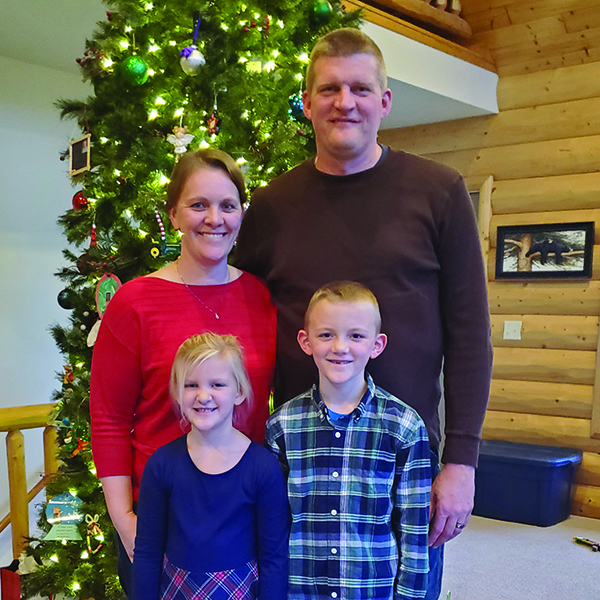
Senses of Normalcy
After her procedure, Kelly was excited to bake again. She went home and baked banana bread, relishing in the warm smells filling her home. She was also excited to attend her son’s hockey games.
“The ice at the hockey rink has a unique smell that I missed in a nostalgic way,” said Kelly. “We’re a hockey family, so I really looked forward to going to my son’s hockey game and feeling like I could experience all of it. You don’t realize how much you miss out on just by not being able to smell, even with little things.”
Amy was excited to be able to taste again, so she went to El Loro for lunch after her block.
“After one and a half years, guacamole was so amazing,” said Amy. “Later, I ate a cookie and watermelon – I wanted to clear the rotten fruit and Windex memories out of my head.”
Amy is looking forward to her family’s Christmas cookie baking day tradition this year, which hasn’t been quite the same without a sense of taste or smell.
“Just getting back to normal has been so satisfying – to know that COVID didn’t win,” said Amy. “I think people need to know that if they lost their sense of taste or smell, it’s not just them. It’s more common than you may think, and if you’ve lost either sense – you are not alone.”
If you’ve experienced loss of taste and smell due to COVID-19 and are interested in the stellate ganglion block procedure, schedule a consultation with Joslin by calling us at 320-864-7816.
While stellate ganglion blocks have been in use for many years, they are not currently FDA-approved for post-COVID treatment. Trials are underway to reach FDA-approval, but until then, insurance companies may not cover the procedure. With questions about insurance coverage, please reach out to our Business Services Office at 320-864-7780.
